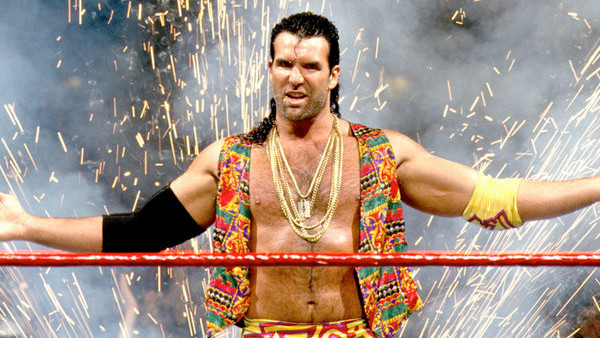10 Wrestlers Who Could Have Been Franchise Players For WWE
Few wrestlers become legends, but even fewer become franchise players.

A franchise player isn’t just a team’s top performer, but the cornerstone around which a franchise is built. LeBron James at the Cavaliers, Cristiano Ronaldo at Real Madrid, Tom Brady at the Patriots: these are the players that define not only their franchise’s success, but their identity.
The term has been used in professional wrestling for years. It started with Hulk Hogan and WWE’s crossover to the mainstream in the 1980s, then continued with Stone Cold Steve Austin and The Rock through the Attitude Era and beyond.
These wrestlers were the face of WWE (and thus, the industry) for their respective eras. Their longevity, popularity, and drawing power helped carry the company to unparalleled success. John Cena inherited the mantle when Rocky and Austin abandoned their full-time schedules, and while he remains polarising, it’s a role he continues today.
It’s an incredibly difficult position to reach, and nobody has come close to knocking Cena from his ivory tower for close to ten years. Skill, charisma, dedication, marketability, the company’s full support: it takes a perfect set of circumstances to become a franchise player, and few ever get there.
WWE have only successfully created a handful of true franchise players over the years, but they’ve had plenty of options. Their history is littered with incredible talents who, if given the chance, would’ve risen-up to claim the role as their own, but never had the opportunity to do so.
Here are 10 wrestlers who could’ve been franchise players for WWE.
10. Cody Rhodes

Cody Rhodes’ May 2016 release may go down as one of the most disappointing in WWE history. Coming from a legendary bloodline, you’d have thought his sharp skillset, undeniable pedigree, and charisma would have made him a shoe-in for long-term WWE success, but it wasn’t to be.
Rhodes always outshone his partner Ted DiBiase Jr., in Legacy, and he was a midcard highlight throughout his “Dashing” and Rhodes Scholars days. Cody and his brother Goldust’s feud with Triple H and Randy Orton should have catapulted Rhodes to main event level: instead, WWE saddled him with the catastrophic Stardust gimmick, a decision that eventually led to Cody’s release a few months ago.
Though not exactly a Shawn Michaels-level performer, Cody could hold his own with anyone in the company. His microphone performances were always on-point, and by the time the Rhodes brothers defeated Seth Rollins & Roman Reigns at Battleground ‘13, their popularity was stratospheric.
Sadly, WWE opted to bury Cody under a cheap knock-off version of his brother’s gimmick. He has appeared for a number of independent companies since leaving WWE, but unless he returns, Cody will forever be remembered as one of the greatest what ifs in recent WWE history.